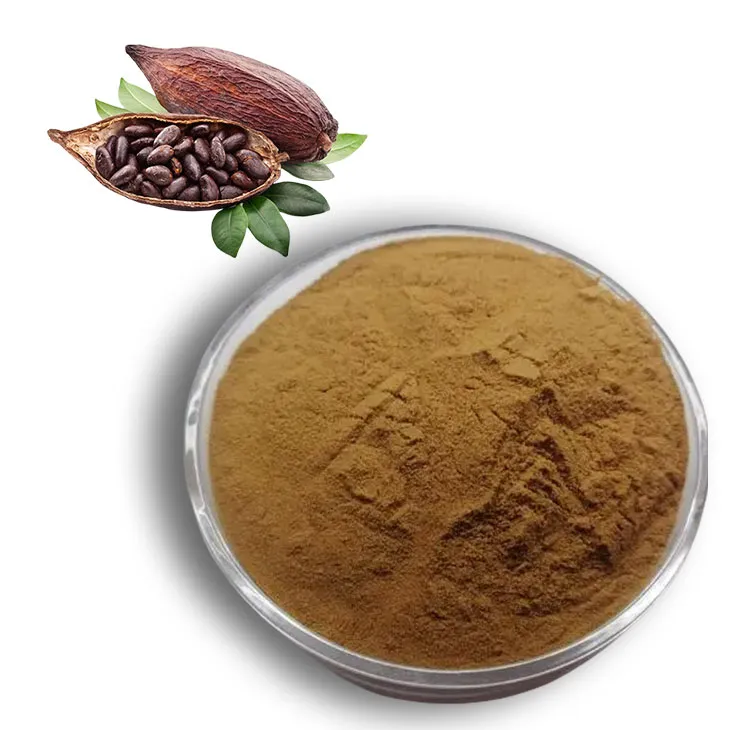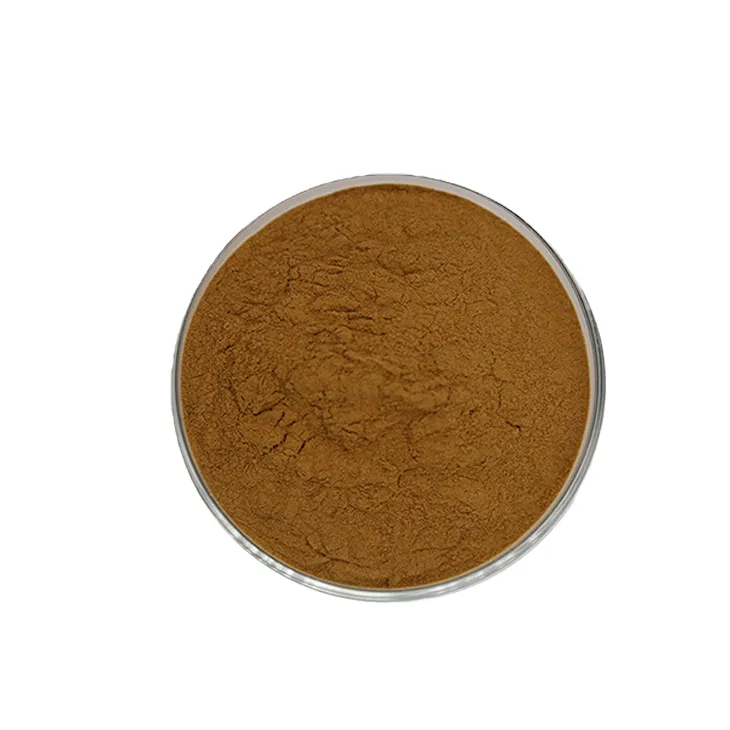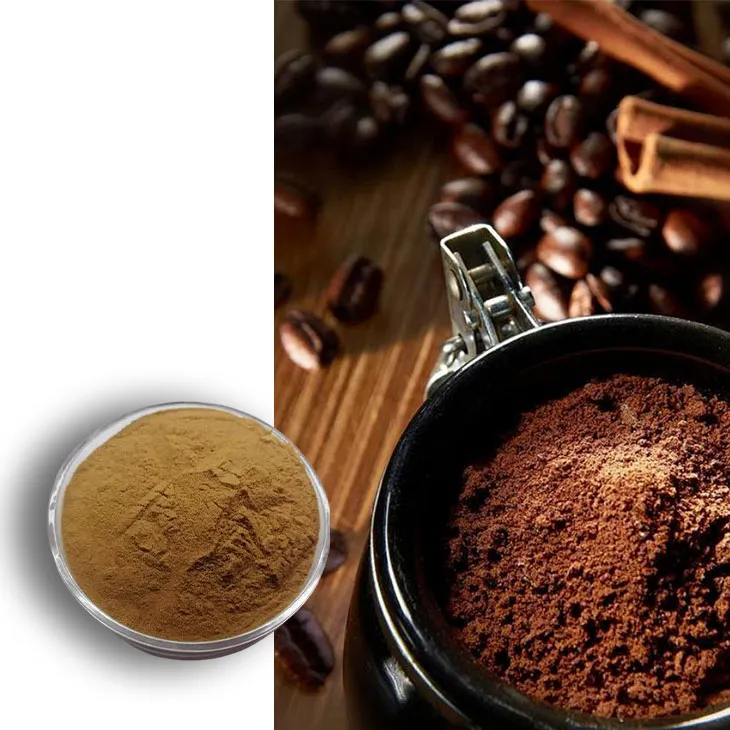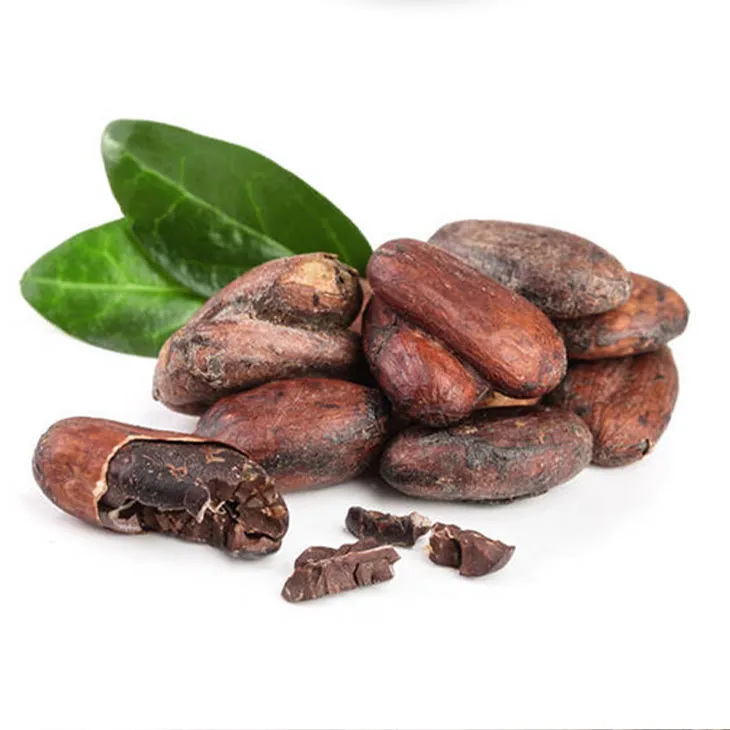- 0086-571-85302990
- sales@greenskybio.com
Cocoa Extract: Benefits, Uses and Possible Side Effects
2024-11-12

1. Introduction
Cocoa Extract has been gaining significant attention in recent years due to its potential health benefits and wide range of uses. Derived from the cacao bean, this natural substance is a rich source of various bioactive compounds. It has been used for centuries in traditional medicine in some cultures and is now a popular ingredient in modern food, beverage, and even cosmetic industries.

2. What is Cocoa Extract?
Cocoa Extract is obtained from the cacao bean, which is the main ingredient in chocolate. The extraction process involves separating the valuable components from the bean. These components include flavonoids, polyphenols, and other bioactive substances. Flavonoids are a type of antioxidant that play a crucial role in the potential health benefits associated with cocoa extract.

3. Health Benefits of Cocoa Extract
3.1 Heart Health
One of the most well - known benefits of cocoa extract is its positive impact on heart health. The flavonoids present in cocoa extract can help in reducing blood pressure. By relaxing the blood vessels, they allow for better blood flow, which in turn can lower the risk of hypertension. For example, a study showed that regular consumption of cocoa - rich products led to a significant decrease in systolic and diastolic blood pressure in some participants. Additionally, cocoa extract can also reduce inflammation in the body. Inflammation is a key factor in the development of many heart - related diseases, such as atherosclerosis. The anti - inflammatory properties of cocoa extract can help in preventing the build - up of plaque in the arteries.
3.2 Antioxidant Properties
Cocoa extract is rich in antioxidants. Antioxidants are substances that can neutralize free radicals in the body. Free radicals are unstable molecules that can cause damage to cells and DNA. By scavenging these free radicals, cocoa extract can help in protecting the body against various diseases, including cancer and neurodegenerative diseases. The flavonoids in cocoa extract are particularly effective antioxidants. They can help in reducing oxidative stress, which is associated with aging and many chronic diseases.
3.3 Cognitive Function
There is growing evidence to suggest that cocoa extract may have a positive impact on cognitive function. The flavonoids in cocoa can improve blood flow to the brain. This increased blood flow can enhance brain function, including memory, attention, and problem - solving abilities. Some studies have shown that elderly individuals who consume cocoa - rich products may have a lower risk of developing cognitive decline. Moreover, cocoa extract may also have a neuroprotective effect, protecting the brain cells from damage caused by factors such as oxidative stress and inflammation.
3.4 Skin Health
Cocoa extract is also beneficial for skin health. The antioxidants in cocoa can protect the skin from damage caused by UV radiation and environmental pollutants. They can also help in reducing inflammation in the skin, which is beneficial for those with skin conditions such as acne and eczema. Additionally, cocoa extract may improve skin hydration and elasticity. Some cosmetic products now contain cocoa extract for its potential anti - aging and skin - nourishing properties.

4. Uses of Cocoa Extract
4.1 In the Food and Beverage Industry
Cocoa extract is widely used in the food and beverage industry. It is a key ingredient in chocolate - based products, such as chocolate bars, truffles, and hot chocolate. In addition to its flavor, it adds nutritional value to these products. Cocoa extract is also used in other food products, such as baked goods, ice creams, and yogurts, to provide a rich chocolate flavor. In the beverage industry, it is used in coffee and tea blends to add a unique flavor profile. Some energy drinks also contain cocoa extract for its potential stimulant and antioxidant properties.
4.2 In the Cosmetic Industry
The use of cocoa extract in the cosmetic industry is on the rise. It is used in a variety of skin care products, including creams, lotions, and masks. As mentioned earlier, it can help in protecting the skin from damage, reducing inflammation, and improving hydration and elasticity. Some hair care products also contain cocoa extract for its potential to nourish the hair and scalp.
4.3 In Traditional Medicine
In some traditional medicine systems, cocoa extract has been used for various purposes. For example, in certain indigenous cultures in Central and South America, it has been used to treat digestive problems, such as diarrhea and indigestion. It has also been used as a natural remedy for fatigue and stress. While modern scientific research is still exploring the full potential of cocoa extract in these areas, the traditional uses provide some insights into its possible therapeutic properties.

5. Possible Side Effects of Cocoa Extract
5.1 Allergic Reactions
One of the most common possible side effects of cocoa extract is allergic reactions. Some individuals may be allergic to components in the cacao bean, such as proteins. Allergic reactions can range from mild symptoms, such as itching and hives, to more severe symptoms, such as difficulty breathing and anaphylactic shock. People with known food allergies, especially to nuts or chocolate, should be cautious when consuming products containing cocoa extract.
5.2 Caffeine - Related Effects
Cocoa contains caffeine, although in smaller amounts compared to coffee. For some people, the caffeine in cocoa extract can cause side effects such as insomnia, jitters, and increased heart rate. Those who are sensitive to caffeine should be aware of the potential effects when consuming products with cocoa extract. Additionally, excessive consumption of cocoa - rich products may lead to an over - intake of caffeine, which can have negative impacts on health.
5.3 Interaction with Medications
Cocoa extract may interact with certain medications. For example, it may interfere with blood - thinning medications, as the flavonoids in cocoa can also have an effect on blood clotting. It is important for individuals taking medications to consult their doctor before consuming products containing cocoa extract to avoid any potential adverse interactions.
6. Conclusion
Cocoa extract is a natural substance with many potential benefits, including those related to heart health, antioxidant properties, cognitive function, and skin health. It has a wide range of uses in the food, beverage, and cosmetic industries, as well as in traditional medicine. However, it is important to be aware of the possible side effects, such as allergic reactions, caffeine - related effects, and interactions with medications. As with any natural product, moderation is key, and individuals should consult a healthcare professional if they have any concerns about consuming cocoa extract or products containing it.
FAQ:
What are the main benefits of cocoa extract?
Cocoa extract is rich in antioxidants such as flavonoids. These components can improve heart health by reducing blood pressure and inflammation. It may also offer other potential benefits like antioxidant protection for cells.
How is cocoa extract used in the food and beverage industry?
Cocoa extract is widely used in the food and beverage industry, especially in chocolate - based products. It can enhance the flavor and aroma of these products. It may also be used in some functional foods and drinks due to its potential health - promoting properties.
What are the possible side effects of cocoa extract?
One possible side effect of cocoa extract is allergic reactions in some individuals. However, such cases are relatively rare. In addition, excessive consumption might lead to some digestive discomfort in some cases, but this also depends on individual tolerance.
Can cocoa extract really improve heart health?
Yes, cocoa extract can potentially improve heart health. The flavonoids in it can help in reducing blood pressure and inflammation, which are two important factors related to heart health. However, it should be noted that it is not a substitute for medical treatment for heart diseases.
Is cocoa extract suitable for everyone?
No, cocoa extract is not suitable for everyone. People with allergies to cocoa or its components may experience allergic reactions. Also, those with certain medical conditions or taking specific medications should consult a doctor before consuming products containing cocoa extract.
Related literature
- The Health Benefits of Cocoa Flavonoids: A Review"
- "Cocoa Extract in Food and Health: Current Research and Future Perspectives"
- ▶ Hesperidin
- ▶ citrus bioflavonoids
- ▶ plant extract
- ▶ lycopene
- ▶ Diosmin
- ▶ Grape seed extract
- ▶ Sea buckthorn Juice Powder
- ▶ Beetroot powder
- ▶ Hops Extract
- ▶ Artichoke Extract
- ▶ Reishi mushroom extract
- ▶ Astaxanthin
- ▶ Green Tea Extract
- ▶ Curcumin Extract
- ▶ Horse Chestnut Extract
- ▶ Other Problems
- ▶ Boswellia Serrata Extract
- ▶ Resveratrol Extract
- ▶ Marigold Extract
- ▶ Grape Leaf Extract
- ▶ blog3
- ▶ blog4
- ▶ blog5
-
Organic Tongkat Ali extract powder factory.
2024-11-12
-
How to make powder with ashwagandha extract.
2024-11-12
-
Rosehip extract manufacturers from China.
2024-11-12
-
The best cat's claw extract in nature.
2024-11-12
-
Chinese Dandelion Leaf Extract Suppliers.
2024-11-12
-
Chia Seed Powder
2024-11-12
-
Withania Somnifera Extract
2024-11-12
-
Hedyotis Diffusa Extract
2024-11-12
-
Motherwort Extract
2024-11-12
-
Nutmeg Extract
2024-11-12
-
Hawthorn Extract
2024-11-12
-
Buckthorn bark extract
2024-11-12
-
Sugarcane Extract
2024-11-12
-
Plantain extract
2024-11-12
-
Mulberry leaf Extract
2024-11-12





















